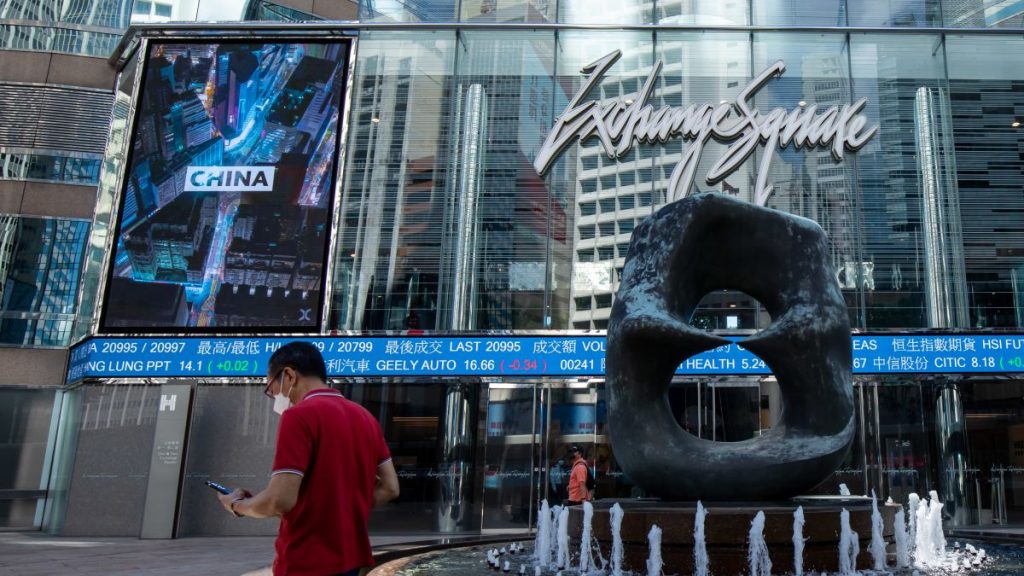After the US Federal Reserve increased rates by 75 basis points and indicated that there will be other increases in the future, concerns about a recession increased. On Thursday, Hong Kong stocks plunged to their lowest level in more than ten years, and other Asian markets also fell.
The Hang Seng (HSI) Index dropped as much as 2.6%, dropping under 18,000 points, before marginally bouncing back. By 3.30 a.m. ET had fallen 2% and was trading at 18,079. This was its lowest price since December 2011.
While the Nikkei 225 (N225) in Japan and the Kospi in South Korea both declined by 0.6%, the S&P/ASX 200 index in Australia plummeted by 1.6%. The Shanghai Composite Index (SHCOMP) of China decreased by 0.3%.
The drops followed the Federal Reserve’s approval of a third consecutive 75-basis-point rate hike on Wednesday in a bold effort to combat the US economy’s ongoing problems with high inflation.

The enormous increase brings the benchmark lending rate of the US central bank to a new goal range of 3%-3.25%, which was inconceivable to the markets only a few months ago. That represents the greatest level since the 2008 global financial crisis.
The Fed has never hiked rates this much so quickly, according to David Chao, global market strategist for the Asia Pacific (ex-Japan) at Invesco. He made these remarks when comparing this rate rise cycle to past rate hike cycles dating back to 1983.
Given the Fed’s “forceful and quick” rate hikes, he continued, “it is becoming increasingly difficult for the US to avoid recession.”
The central bank of Hong Kong increased its base rate by 75 basis points on Thursday in order to maintain the currency’s peg to the US dollar.
In contrast, the Bank of Japan maintained its policy of attempting to stimulate the economy on Thursday by keeping short-term interest rates at minus 0.1%. Following the announcement, the Japanese yen hit a new 24-year low of 145 against the US dollar.
On Thursday, September 15, 2022, in Washington, President Joe Biden and Secretary of Labor Marty Walsh discuss a potential railway labor agreement in the White House Rose Garden.

A variety of other concerns, such as escalating US-China tensions over Taiwan, damaged investor sentiment in the area. Just two days prior, President Joe Biden stated that US military personnel would defend Taiwan in the event that the Chinese military attempted to invade the democratically self-governed island. On Tuesday, US Navy and Canadian warships made their way through the Taiwan Strait.
“The geopolitical background, the China slowdown story, the possibility of energy restrictions in Europe, the strong currency, and fragile-looking domestic [US] equity and housing markets point to clear recession risks,” analysts at ING wrote in a report on Thursday.
They continued, “Tighter monetary conditions and a more aggressive Federal Reserve rate hike profile will only exacerbate the threat.”

Irving is the Chief Editor at the Landscape Insight. He lives just outside of New York. His writings have also been featured in some very famous magazines. When he isn’t reading the source material for a piece or decompressing with a comfort horror movie, Irving is usually somewhere in his car. You can reach Irving at – [email protected] or on Our website Contact Us Page.








